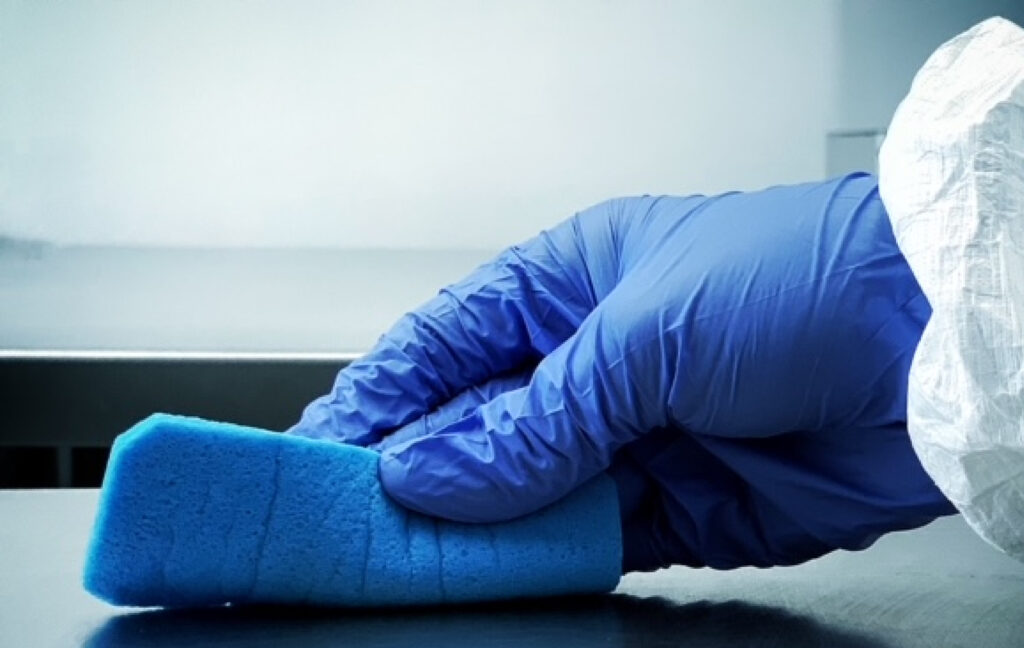POLYWIPE™ sponges designed for collection of possible contaminants from a wide range of surfaces. These surfaces include production machinery in food factories, and carcasses in the butchering trade.
The wipes are blue because this colour is traditionally used in the food industry for safety non-food items as it is not a naturally occurring food colour and if dropped it will be easily spotted.
Anyone who has watched a baking/cookery programme on TV may well have seen the blue plasters used in kitchens in preference to the skin-coloured ones in most household first aid boxes.
The sponges are premoistened to ensure a good uptake of contaminants from dry surfaces. The moistening liquid varies according to the intended use, with some products being specific to particular industry applications.
Although these products have been traditionally marketed in the food and pharma industry for surface surveillance, they are also ideally suited to infection control screening in hospitals and clinics.
This versatile product can be used on hard surfaces such as bed frames, toilet units, window sills, pens and a wide range of soft furnishings also, such as curtains, bedding and staff lanyards.
The sponge can then be pressed onto media plates to transfer any organisms that may have been picked up on the surfaces, and the plates incubated in laboratories where growth will be measured.
This is a quick and easy method of assessing the cleanliness of a particular area or surface.
